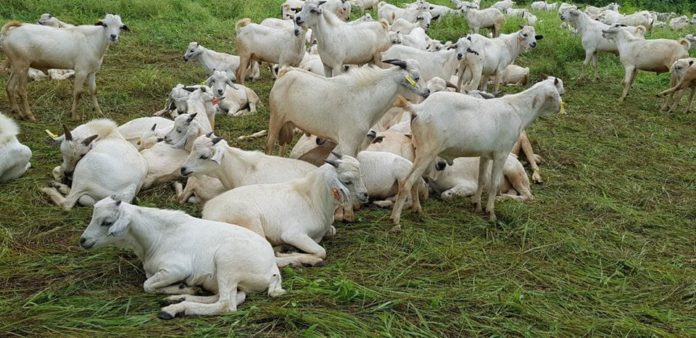The International Livestock Research Institute (ILRI), part of the Consortium of International Agricultural Research Centers (CGIAR), in collaboration with partners, has developed a heat-tolerant vaccine aimed at eliminating Peste des petits ruminants (PPR)—commonly known as goat plague—from Africa by 2030.
The vaccine, named OvipestePlus, is the result of a joint effort between Mali’s Central Veterinary Laboratory (LCV), India’s Hester Biosciences Limited, and ILRI.
PPR is among the most contagious and fatal of livestock diseases affecting goats and sheep, especially among poor households of developing countries, where it crushes rural livelihoods and sends millions into destitution every year.
Goat plague has been spreading into new countries over the past two decades. It causes more than USD 2 billion in global losses annually, with one-third occurring in Africa. The disease has a particular stranglehold on Mali, where one-third of West Africa’s small ruminants are raised.
However, new hope has emerged in the new “thermotolerant” vaccine that retains potency up to 9 days at 32.5°C to 38.5°C and 7 days at 40°C; and for 5 hours after reconstitution with water, making it far better suited to Mali’s challenging conditions than the thermolabile PPR vaccine, which is deactivated by heat and only lasts for 1 hour after its reconstitution.
Validation by the African Union’s Pan African Veterinary Vaccine Centre (PANVAC) and trials showing 99% efficacy confirm the technical superiority of the new thermotolerant vaccine.
Why a vaccine? Vaccines remain the gold standard—the most durable and cost-effective instrument—for ensuring animal health. Just one vaccine injection provides small ruminants with lifetime immunity to PPR.
Who benefits? Scaling up deployment of the thermotolerant vaccine in Mali will serve as a “force multiplier”, amplifying a wealth of tangible benefits stemming from healthy and productive stock, particularly for poor women.
Why now? Scaling the vaccine now is particularly timely. Earlier this year, the Pan African Programme for the Eradication of PPR and Control of other Small Ruminant Diseaseswas launched. At the same time, the European Union has increased its support to the African Union Inter-African Bureau for Animal Resources (AU-IBAR) and PANVAC to eradicate the disease from Africa by 2030. The World Bank has already made a further large commitment to support PPR vaccination in Sahelian countries.
This cooperative enterprise is thus a once-in-a-generation chance to eradicate PPR from the continent. Mali’s successful deployment of the thermostable OvipestePlus vaccine is central to this effort.








